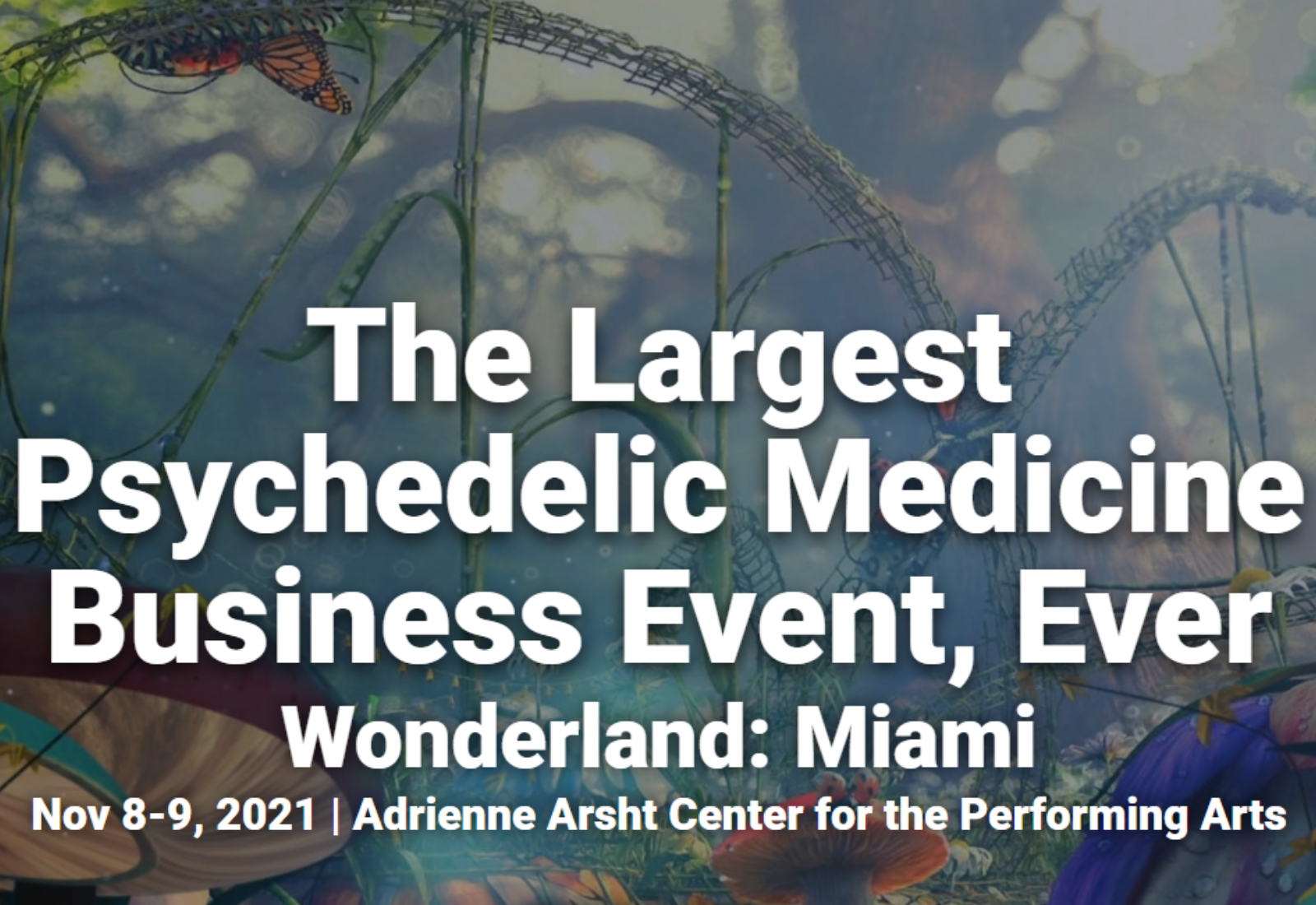
15 Nov Dispatches from Wonderland Miami

Microdose hosted its annual psychedelics conference in Miami last week (appropriately titled “Wonderland”). We were there, meeting industry insiders and clients, and keeping on the cutting edge of the psychedelics space. For our readers who weren’t able to make it, here are some of our key takeaways from two days of all things psychedelics:
Everyone is interested in figuring out how to legalize federally
The conference’s opening panel was on pathways to federal legalization. This is a topic we have covered regularly on the Canna Law Blog, most recently by Mason Marks, here. Rescheduling psychedelics (most notably, psilocybin and MDMA) will be critical to bringing their full scope of medical applications into the mainstream.
Ketamine clinics are flourishing
There was a fascinating panel on the use of ketamine treatments for, among other things, depression and anxiety disorders. We continue to see an uptick in ketamine clinic transactions (the complexities of which we have written about extensively). Our observation was supported by the attendees of Wonderland. With ketamine as the only psychedelic treatment that can (currently) be legally prescribed and administered “off label” by licensed physicians, many entrants into the psychedelic space have started with operating ketamine clinics, with the goal of expanding to other psychedelic treatments when legally permissible.
Pharmaceutical start-ups are betting on the treatment potential of psychedelics
One thing we immediately noticed about Wonderland’s numerous panels was the prevalence of MDs in leadership positions at pharmaceutical start-ups already in or planning on entering the psychedelic space. Companies are all-in on researching potential applications for treatment resistant depression, anxiety disorders, PTSD, pain treatment, and a number of other disorders. Some of these companies are already engaged in clinical trials, a key indicator that significant capital and resources are behind entrants into the market. Coupled with the fact that, as of October 2021, 50 psychedelics companies are now publicly listed on U.S. exchanges, it is clear that the industry has real potential from both medical treatment and business perspectives.
Psychedelics are not cannabis
A recurring theme during Wonderland was comparisons to the cannabis industry. We have written about the differences in the industries (see here and here), which was reinforced during the conference’s panels. In large part, cannabis legalization efforts have focused on ending and reversing incarceration for cannabis-related crimes and capitalizing on the business opportunities created by a legal and regulated adult-use cannabis industry. Medical cannabis legalization was the pre-cursor to adult-use cannabis legalization, but on the whole, the industry has focused on adult-use (i.e. recreational) business opportunities.
Most of what we heard during Wonderland focused on the medical applications of psychedelics, and with good reason: psychedelics offer a safe alternative to many traditional medical treatments that can be ineffective or harmful (both in terms of side effects and potential addiction) to many people.
To that end, our biggest takeaway from Wonderland is the real pharmacological potential of psychedelics. For many Americans suffering from depression, anxiety, PTSD, and any number of other debilitating disorders, psychedelics offer a non-opioid option that has clinical evidence of both effectiveness and safety. The more safe and effective alternatives we, as a society, can offer people who are suffering, the better.


Sorry, the comment form is closed at this time.